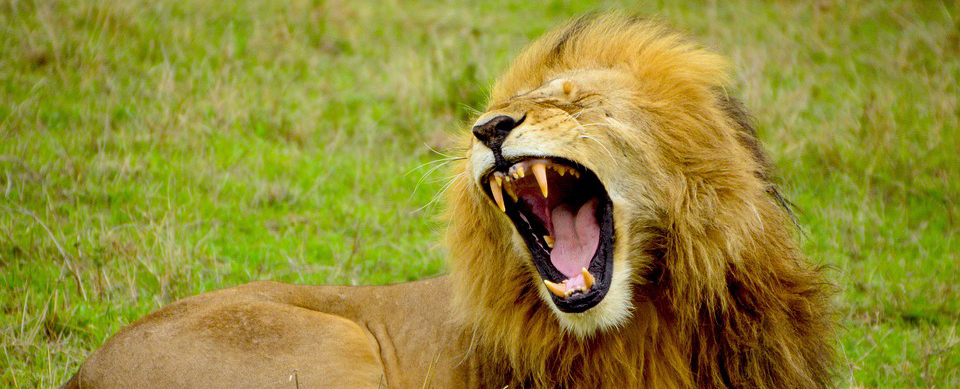Don’t you just love it when you notice something – say a word or an object – and then in the next few days you spot it over and over again?
Is that coincidence, your R.A.S. (your Reticular Activating System – those neural circuits in the brain that filter information and have you suddenly hear your own name across the room at a party), your intuition, or even a nudge from the Universe?
Or maybe it’s all of the above.
This week, for me, it’s been… lions!
Last Saturday I played in a Gala which included three numbers from the hit musical ‘The Lion King’, with amazing music composed by Elton John (and not so easy to play!)
Then in my yoga practice yesterday morning, doing a boat pose (seated in a sort of V, legs up in front, arms in the air) the teacher said ‘Hold Simba out over the cliff’ as we reached to each side. That put a smile on my face (and was great for the abs!)
And here is sighting #3. This article which I’ve been meaning to write for a while since mulling this approach over and trying it out for myself in my own life, as well as passing it on to others.
So what does R.O.A.R. stand for?
- Relax
- Observe
- Act with intention.
- Repeat
Kind of an instant, easy to remember, mantra which is great for those stressful moments. As you practice it starts to become automatic, really beginning to create a new knee-jerk response to difficult situations.
Here’s how it goes.
Relax
In the Energy Psychology Cert course I am currently following I have been introduced to the following quick, powerful exercise. The course creator, Dawson Church PhD, of EFT Universe and author of the ground-breaking book ‘The Genie In Your Genes’, writes about using this when driving in busy, stress-inducing traffic.
Here’s what you do – don’t blink or you’ll miss it!
You relax your tongue.
That’s it. Let your tongue soften, resting on the floor of your mouth. Then think about an event that always makes you upset or angry. You’ll find that as long as you keep your tongue relaxed, you won’t be able to work up much emotional intensity around the event.
Apparently the act of relaxing your tongue sends a signal to your autonomic(read automatic) nervous system, via the Hypoglossal Nerves just below the tongue muscles, that you are not under threat. So you won’t jump into fight or flight mode.
If I am alone I even like to couple this with another Lion, a yoga exercise where you open your mouth and your eyes wide, stick your tongue out hard, arms stretched down and out, fingers splayed. Breathe! Then let go and really feel your tongue releasing all that tension.
I’ve been using the tongue-relaxing exercise for making video recordings playing the violin. When I originally watched myself I was horrified to see how tense I looked, with a strict, tight-lipped, ‘do or die’ expression on my face. OMG. Not the impression of ease and joy and effortlessness that I wanted to convey with my playing at all!
So I applied the exercise.
Immediately I looked much better – and about 10 years younger- and sounded much better too.
One of my violin students, who has always pulled terrible faces when he performs, tried this too and came back the next week looking – and feeling – like a different player. Wonderful.
Observe
I find it so helpful to apply the Mindfulness technique of observation when I am in a challenging situation. Not so easy when I am caught up in my emotions and habitual critical, often self-castigating, thought-patterns, but even just a chink here and there of stepping back and noticing allows that tiny bit of light to come in and let me see the situation a little differently.
What to observe?
Well, you can start with physical feelings and sensations:
- Is my heart racing?
- Do I have butterflies fluttering in my stomach?
- Where do I feel tension or even pain?
- How about that sinking feeling or tightness in my throat or chest?
And how intense are these feelings, on a scale of 0 to 10?
Just noticing them without trying to change anything can start to help them recede a little. (And of course you can always use my favourite technique – EFT – to start clearing them too…)
Then there are emotions.
I find it entertaining to imagine that this situation is a scene from my life ‘movie’. I am the heroine (naturally!) and the other people are my fellow actors, all reading their parts . Sometimes they get to be the goodies, often-times the baddies. And they are darn good at their job, totally convincing, really very believable!
So I watch myself from outside. Ooh look! Anger, frustration, fury, worry, fear – again!
With compassion, but also with a little distance and detachment.
This tends to take the edge off the emotion and allow me to remember the classic ‘This too shall pass’. It’s a storm cloud in my normally much bluer sky which will eventually blow over.
Act with intention
Oh, the power of deliberate action!
I catch my cats playing. Little Pepper strolling unaware in the hall passage. Muffin, unseen, lurking just round the corner. Crouched, wound up like a tightly coiled spring, wiggling her bottom from side to side, ready to fire out and jump on her innocent, unsuspecting sister as she advances. And bam! The mini-lion leaps on its prey!
When I use ‘intentioning’ it’s not quite so fiendish. It’s more about being creative and then selective.
Asking myself, what different outcomes could there be here? A furious, shouting match with my (normally) loved ones, or approaching the situation in a calm, controlled manner. What outcome would be ideal for me and for the highest good of all concerned?
All of this can be stuffed into an intention, imagined, and then let go of. And then I wait to see how things play out.
And do I do this with every awkward, upsetting, emotionally-charged moment of my life?
Absolutely not! There are many, many ‘human moments’, for good or for bad. But I believe that we all have gods inside us and that there can be little tiny, triumphant moments of accessing our inner divinity.
It becomes somewhat addictive. This ‘on purpose’ act of feeling good and increasing our happiness and well-being. And I mean that both figuratively and literally. As exercise fans know, our bodies create chemicals when we feel good, like endorphins and serotonin, which flood them at a cellular level. And this mechanism can be increased with practice. One of those wonderful ‘virtuous circles’ which are so good to enter into.
Which brings us to:
Repeat
Do this again and again. Make a plan to try this out for 30 days. To Relax, Observe, Act with intention, and Repeat.
One way I remind myself is to write ROAR in tiny letters on my left palm. Each time I open my hand I remember to run through the checklist. And of course, life being life, there are no end of opportunities to put the technique to the test.
And, in the meantime, I’m ‘lion-spotting’.
Wait and see how many you catch sight of in the next few days! You’ll be amazed!!
Key Takeaways
- Resting your tongue on the floor of your mouth produces an instant relaxation response.
- Use Mindfulness to take a step back and observe your feelings – both physical and emotional – and take the edge off uncomfortable emotions
- Envisioning and choosing successful and productive outcomes can affect our future experiences and improve our lives
- We can create a positive ‘addiction’ to feeling good – even at a cellular level – and use that to improve our well-being and happiness


